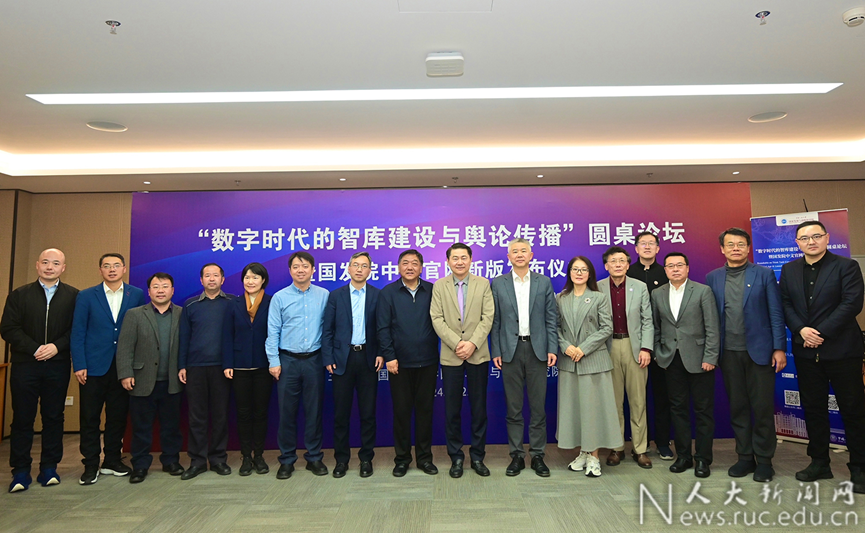30
Dec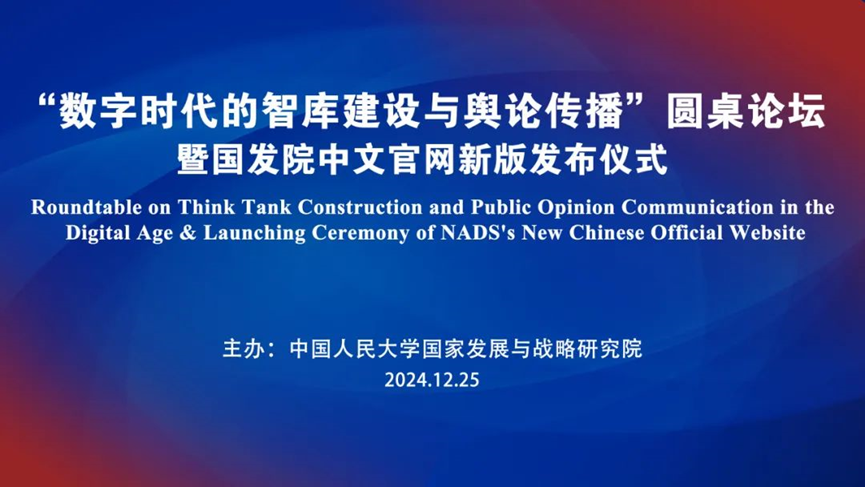
On the afternoon of December 25, the Roundtable on think tank construction and public opinion communication in the digital age and launching ceremony of NADS’s new Chinese official website was held at Renmin University of China. The forum was hosted by the National Academy of Development and Strategy (NADS) of RUC, with special supports from Theory and Practice, Xinhua News Agency, China Daily, China.org.cn, Guangming Online, and Phoenix News.
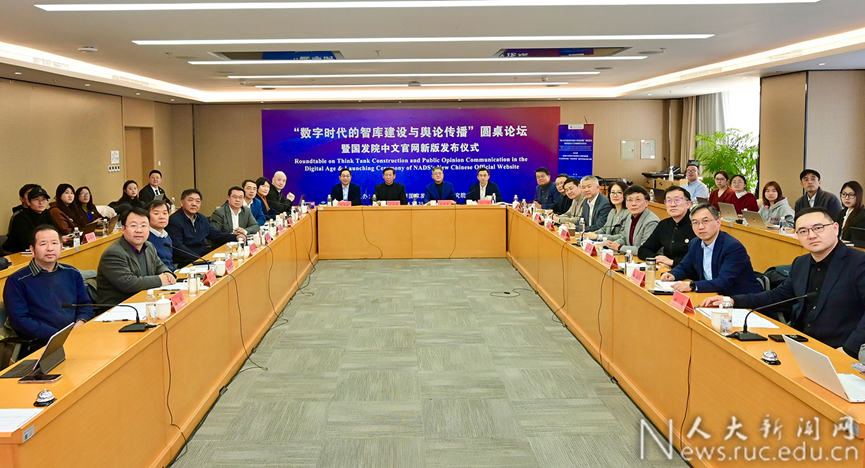
RUC Vice President Feng Shizheng attended the opening ceremony and delivered an open speech. Former Vice Minister of the International Department of the Communist Party of China Central Committee and Vice President of the Chinese People’s Association for Peace and Disarmament Yu Hongjun, as well as former Vice Minister of Foreign Affairs and former Deputy Director of the National Radio and Television Administration Le Yucheng, delivered keynote speeches. Liu Qing, Executive Dean of NADS, presided over the opening ceremony.
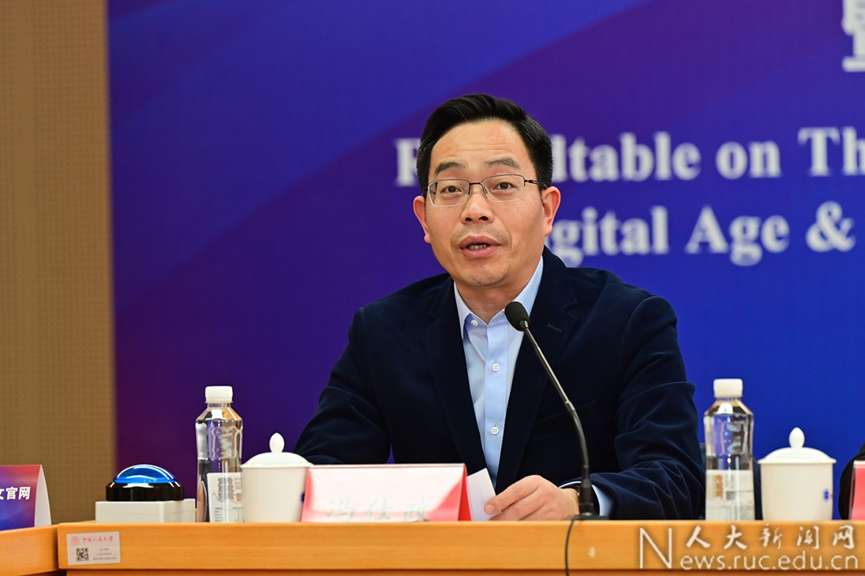
Feng Shizheng noted that diversified digital technologies, represented by artificial intelligence, are increasingly becoming profound forces driving global modernization, transforming international communication paradigms, and shaping global interactions. In the historical process of advancing Chinese modernization, “digitization” must deeply empower new types of think tanks in public opinion dissemination and global governance. He emphasized the importance of adhering to fundamental principles, integrating theoretical insights with practical needs, enhancing situational analysis, precisely positioning roles and leveraging strengths, and expanding communication platforms and agendas from a global perspective.
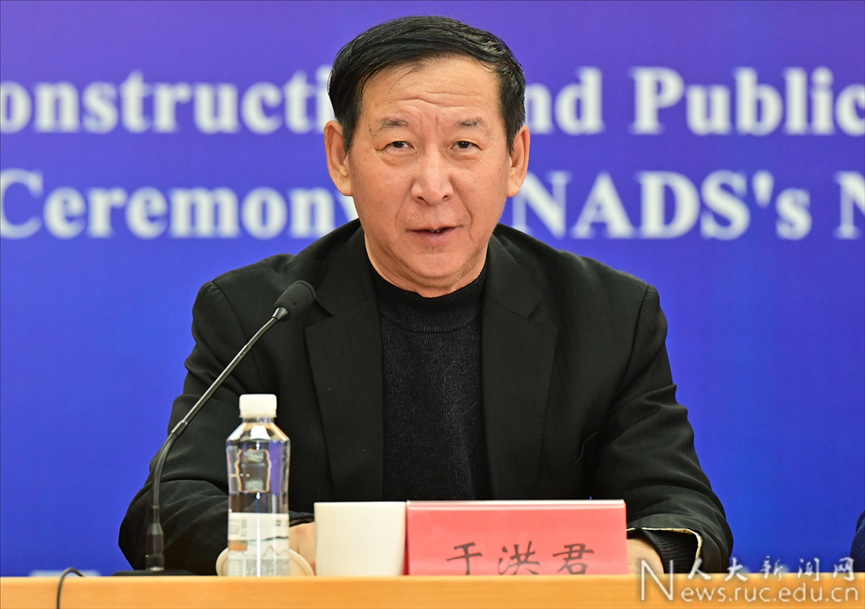
In his keynote speech titled “External Communication Should Always Begin with Shaping a Positive National Image”, Yu Hongjun highlighted the need to continually improve external communication efforts to build a positive image of Chinese civilization and the Chinese people as open, inclusive, cooperative, innovative, and forward-looking. He emphasized focusing on interpreting the advanced nature of the Communist Party’s governance philosophy and the superiority of China’s social system as core elements of external communication, building a discourse system that embodies Chinese characteristics while aligning with contemporary trends, and striving for synergy between external communication and the country’s overall diplomatic strategy.
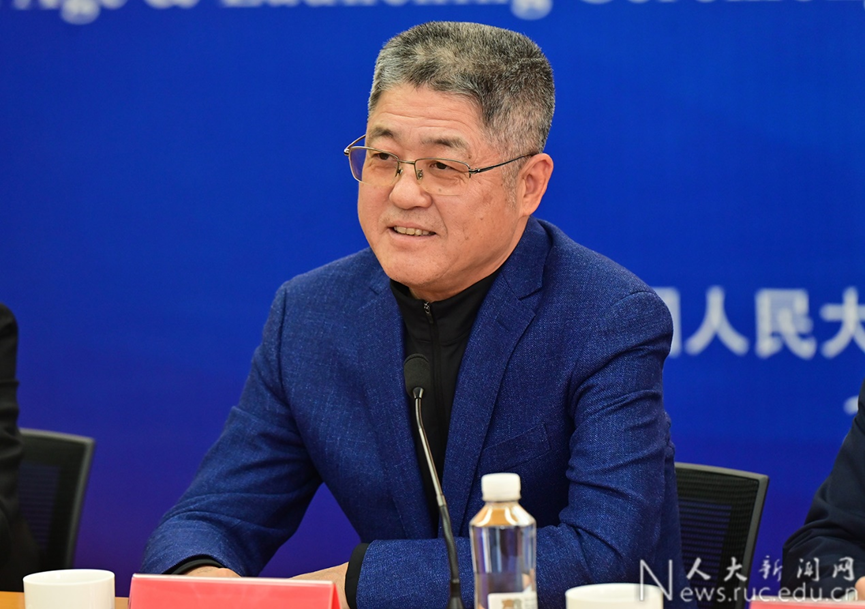
Le Yucheng, in his keynote speech, stressed that think tanks “must contribute more Chinese wisdom and solutions to global governance”. He called for efforts to advance the building of a community with a shared future for humanity, implement global initiatives, safeguard multilateralism centered on the United Nations, enhance the representation and voice of the Global South, promote digital global governance, and improve think tank capacity building, particularly in global governance research and public opinion dissemination.
Feng Shizheng later announced the official launch of the new Chinese website of the National Academy of Development and Strategy.
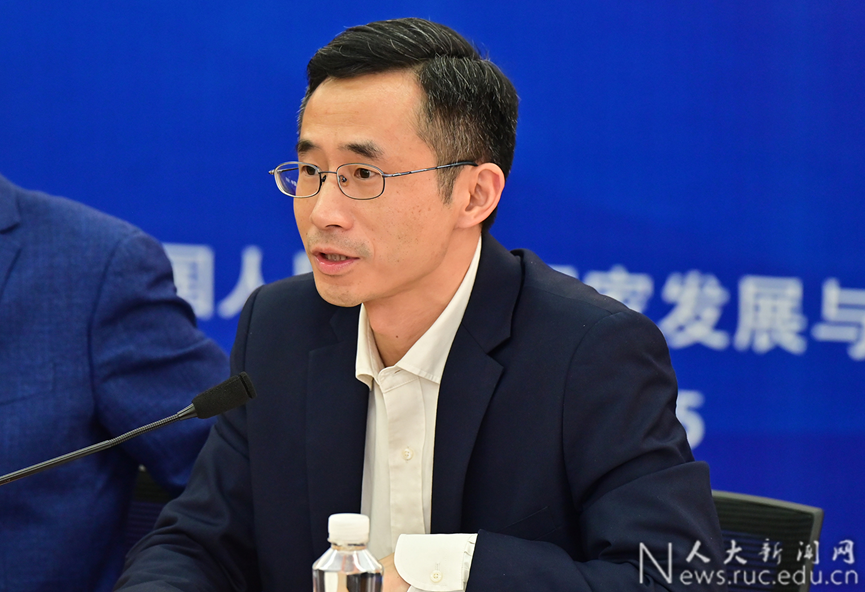
Liu Qing moderated the opening ceremony.
Two thematic seminars were held during the event. The first seminar, focusing on “Enhancing the Global Governance Capabilities and Public Opinion Dissemination Effectiveness of Chinese Think Tanks”, was chaired by Wang Lili, Deputy Dean of NADS. Participants included Sun Shangwu, Deputy Editor-in-Chief of China Daily; Jing Linbo, Director of the Chinese Academy of Social Sciences Evaluation Studies; Pan Qingzhong, Executive Dean of Schwarzman College at Tsinghua University; Jia Qingguo, Director of the Peking University Center for China and Global Humanistic Exchange; Yang Xinhua, Editor-in-Chief of China Pictorial; Wang Huiyao, President of the Center for China and Globalization (CCG); Shi Anbin, Party Secretary of the School of Journalism and Communication at Tsinghua University; and Liu Jun, Chief Editor of Modern Communication at the Communication University of China.
The second seminar, centered on “The Role, Function, and Challenges of Diversified Think Tanks in Advancing Chinese Modernization”, was moderated by Lü Qing, Chief Editor of Think Tank: Theory and Practice. Panelists included Liu Gang, Director of the Xinhua News Agency Research Institute; Wang Wen, Executive Dean of the Chongyang Institute for Financial Studies at RUC; Zou Ming, Editor-in-Chief of Phoenix News; Zhao Shuguang, Associate Dean of the RUC School of Journalism; Sun Modi, Executive Editor-in-Chief of International Communication at the China Foreign Languages Publishing Administration; Xiang Debao, Director of the Beijing Foreign Studies University Center for International Public Opinion and Global Governance; Deng Yong, Director of the Qihuang Law and Business Research Center at the Beijing University of Chinese Medicine; and Lin Jian, Director of the NADS Social Systems Engineering Research Center.
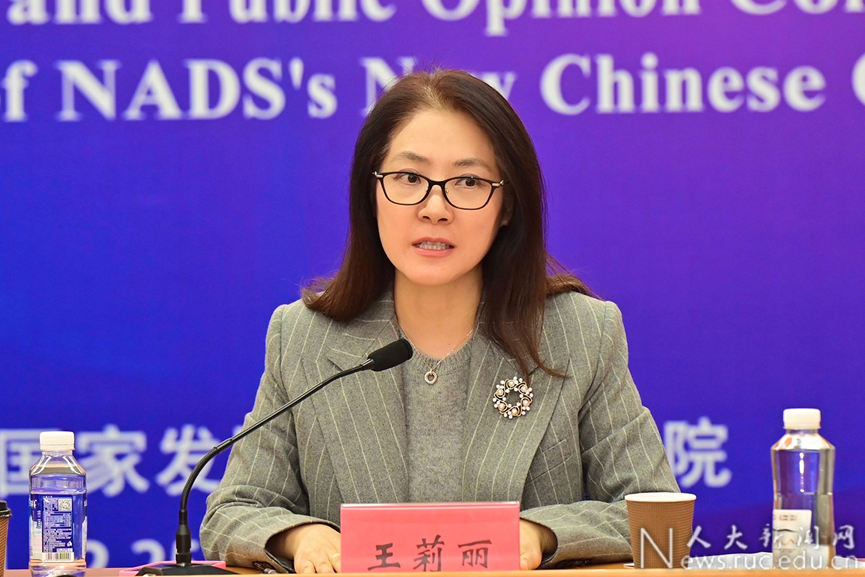
Wang Lili delivered the closing summary. She stated that after a decade of rapid development, Chinese think tanks have transitioned from focusing on quantity and scale to pursuing high-quality development characterized by thought innovation and international influence. She emphasized the need to prioritize talent, deepen institutional reforms, stimulate intellectual creativity, strengthen thought-based public opinion dissemination, foster symmetrical and bidirectional exchanges, and continually enhance the effectiveness of global governance and public opinion dissemination. (Translated by ZHANG Yuqing; Proofread by YANG Fanxin)
